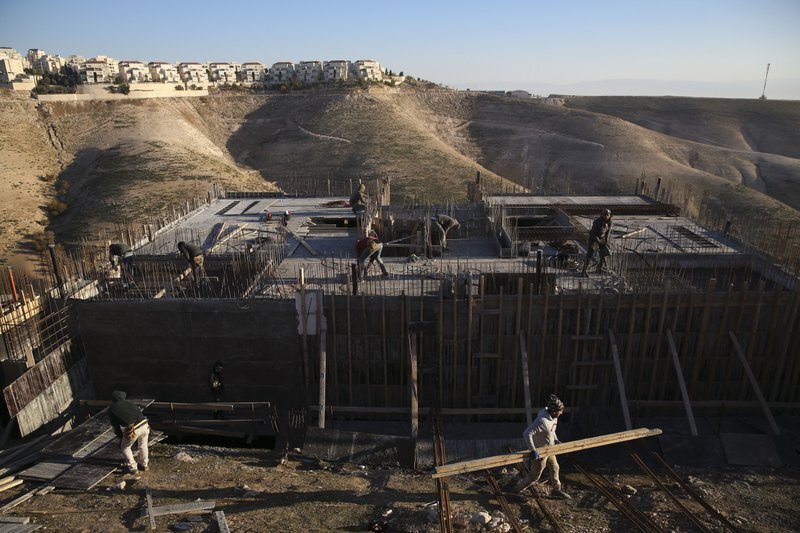Getting your Trinity Audio player ready...
The United States voiced strong opposition to Israel's plans to advance thousands of settlement units in the West Bank, saying these moves were inconsistent with efforts to lower tensions and were damaging to the prospects of a two-state solution that Washington has advocated.
The Israel Land Authority on Sunday published tenders for about 1,300 new settlement homes in the West Bank and authorities are also expected to discuss proposals for another 3,000 homes.
2 View gallery


An Israeli flag is painted on the surrounding wall of the West Bank settlement of Migdalim near the Palestinian town of Nablus
(Photo: AP)
"We are deeply concerned about the Israeli government's plan to advance thousands of settlement units," State Department spokesman Ned Price told reporters.
"We strongly oppose the expansion of settlements, which is completely inconsistent with efforts to lower tensions and to ensure calm, and it damages the prospects for a two-state solution," he said.
"We also view plans for the retroactive legalization of illegal outposts as unacceptable."
Price stopped short of saying the decision would jeopardize relations with Israel but said that the United States was raising the issue with its close ally.
The move is the first of its kind since U.S. President Joe Biden assumed office pledging to take a harder line on the settlements.
It also appeared to run contrary to the government's own vows to reduce tensions with the Palestinians, who view the settlements as the main obstacle to peace.
The announcement of tenders is one of the final steps before construction can commence.
2 View gallery


Palestinian laborers work at a construction site in the Israeli settlement of Maale Adumim, near Jerusalem
(Photo: AP)
Housing Minister Zeev Elkin said in a statement that "strengthening Jewish presence (in the West Bank) was essential to the Zionist vision".
On Monday, the European Union called on Israel to halt settlement construction and not go ahead with tenders.
"Settlements are illegal under international law and constitute a major obstacle to the achievement of the two-State solution and a just, lasting and comprehensive peace between the parties," a spokesperson for the EU's executive Commission said in a statement.
Palestinian Prime inister Mohammed Shtayyeh had urged Washington to "confront" Israel on its "aggression" through the settlements.

